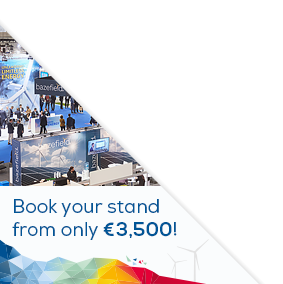Posters
Siblings:
ProceedingsProgrammeProceedingsSpeakersPostersContent PartnersElectrification StageMarkets TheatreR&I ActivitiesStudent DayProgramme Committee & abstracts reviewersPresenters dashboardCome meet the poster presenters to ask them questions and discuss their work
We would like to invite you to come and see the posters at our upcoming conference. The posters will showcase a diverse range of research topics and provide an opportunity for delegates to engage with the authors and learn more about their work. Whether you are a seasoned researcher or simply curious about the latest developments in your field, we believe that the posters will offer something of interest to everyone. So please, join us at the conference and take advantage of this opportunity to learn and engage with your peers in the academic community. We look forward to seeing you there!

PO201: REQUIM - Improving erosion testing of rotor blades
Hristo Shkalov, Senior Blade Specialist, Wind Power LAB
Abstract
With the continuously increasing blade size of modern wind turbines, erosion protection requires new and stronger materials. The main method for qualification and validation of new erosion protection materials for use in the wind industry is accelerated rain erosion testing (RET). The output of these tests are large pools of images that require manual assessment to build the V/N curves for identification of when erosion occurs. Currently, the assessor does not capture all defects visible on the RET images due to time limitations. Instead, only erosion front (the furthest propagation of damage towards the low speed area of the sample) is recorded. The REQUIM project aims to use machine learning to detect defects on the images from the rain erosion tester, based on a structured data flow. This will optimise processing speed of the tests and allow users to create a more in-depth analysis of the test data. We will be able to gather more information about different failure mechanisms occurring on the test sample. This will enable us to improve the Leading Edge Protection (LEP) product in the design phase, as well as maintain the material better once installed on the blades. Another benefit will be the increased testing speed and lower time for certification and launch to market. The ongoing project is a collaboration between DTU, R&D and WPL, funded by ECD.







